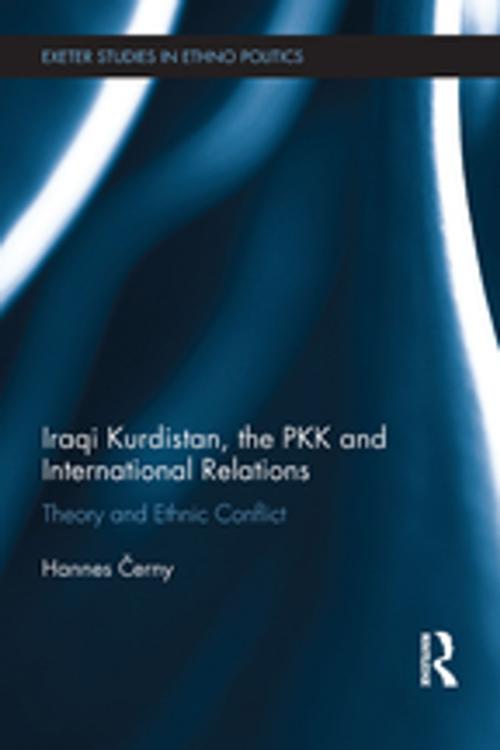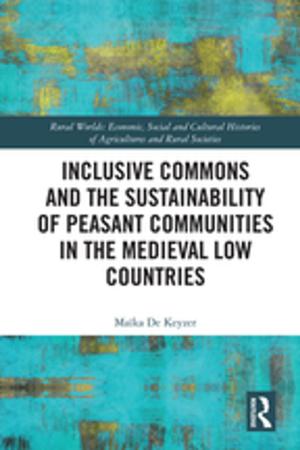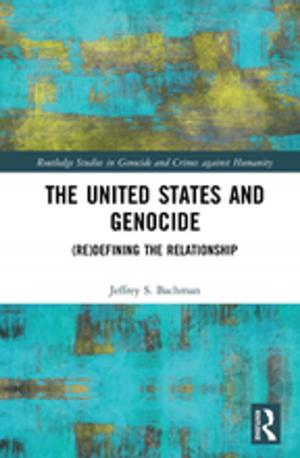Iraqi Kurdistan, the PKK and International Relations
Theory and Ethnic Conflict
Nonfiction, Social & Cultural Studies, Political Science, International, International Relations, Social Science| Author: | Hannes Černy | ISBN: | 9781317197584 |
| Publisher: | Taylor and Francis | Publication: | July 28, 2017 |
| Imprint: | Routledge | Language: | English |
| Author: | Hannes Černy |
| ISBN: | 9781317197584 |
| Publisher: | Taylor and Francis |
| Publication: | July 28, 2017 |
| Imprint: | Routledge |
| Language: | English |
Due to its primacy in explaining issues of war and peace in the international arena, the discipline of International Relations (IR) looms large in analyses of and responses to ethnic conflict in academia, politics and popular media – in particular with respect to contemporary conflicts in the Middle East.
Grounded in constitutive theory, this book challenges how ethnic/ethno-nationalist conflict is represented in explanatory IR by deconstructing its most prominent state-centric models, frameworks and analytical concepts. As much a critique of contemporary scholarship on Kurdish ethno-nationalism as a detailed analysis of the most prominent Kurdish ethno-nationalist actors, the book provides the first in-depth investigation into the relations between the PKK and the main Iraqi Kurdish political parties from the 1980s to the present. It situates this inquiry within the wider context of the ambiguous political status of the Kurdistan Region of Iraq, its relations with Turkey, and the role Kurdish parties and insurgencies play in the war against ISIS in Iraq and Syria. Appreciating these complex dynamics and how they are portrayed in Western scholarship is essential for understanding current developments in the Iraqi and Syrian theatres of war, and for making sense of discussions about a potential independent Kurdish state to emerge in Iraq.
Iraqi Kurdistan provides a comprehensive and critical discussion of the state-centric and essentialising epistemologies, ontologies, and methodologies of the three main paradigms of explanatory IR, as well as their analytical models and frameworks on ethnic identity and conflict in the Middle East and beyond. It will therefore be a valuable resource for anyone studying ethnicity and nationalism, International Relations or Middle East Politics.
Due to its primacy in explaining issues of war and peace in the international arena, the discipline of International Relations (IR) looms large in analyses of and responses to ethnic conflict in academia, politics and popular media – in particular with respect to contemporary conflicts in the Middle East.
Grounded in constitutive theory, this book challenges how ethnic/ethno-nationalist conflict is represented in explanatory IR by deconstructing its most prominent state-centric models, frameworks and analytical concepts. As much a critique of contemporary scholarship on Kurdish ethno-nationalism as a detailed analysis of the most prominent Kurdish ethno-nationalist actors, the book provides the first in-depth investigation into the relations between the PKK and the main Iraqi Kurdish political parties from the 1980s to the present. It situates this inquiry within the wider context of the ambiguous political status of the Kurdistan Region of Iraq, its relations with Turkey, and the role Kurdish parties and insurgencies play in the war against ISIS in Iraq and Syria. Appreciating these complex dynamics and how they are portrayed in Western scholarship is essential for understanding current developments in the Iraqi and Syrian theatres of war, and for making sense of discussions about a potential independent Kurdish state to emerge in Iraq.
Iraqi Kurdistan provides a comprehensive and critical discussion of the state-centric and essentialising epistemologies, ontologies, and methodologies of the three main paradigms of explanatory IR, as well as their analytical models and frameworks on ethnic identity and conflict in the Middle East and beyond. It will therefore be a valuable resource for anyone studying ethnicity and nationalism, International Relations or Middle East Politics.















